
This Parametric Green design for Sustainable skyscraper designed by the team: Patrick Bedarf, Tomas Kozelsky & Dimitrie Stefanescu, for the Evolo 2011 competition. Their main goal was to push parametric design techniques as much as possible into an as experimental direction as they could allow.
Located in Coari, Brazil, at the heart of the Amazon forest, this conceptual tower would be constructed in several phases. The idea of the skyscraper is to create a sustainable skyscraper that allows tourists to explore the Amazon forest while creating global awareness of its alarming destruction rate.
From the competition statement:
The deforestation rate of a country describes the annual destruction of natural forests. With 11.5% in 2004, Brazil lost over 10.722 square miles and marks therefore the highest rate globally. This massive destruction of local woodland area has many different causes and brings negative impacts on local and global ecosystems. Besides the irreversible destruction of the natural environment, diverse ecosystems and rare animal species, deforestation is mainly driven by and feeding the status of poverty in rural regions. Furthermore, in socio-political dynamics of high population pressure and stagnating economic conditions, the sale of land is mostly the only option for poor farmers.
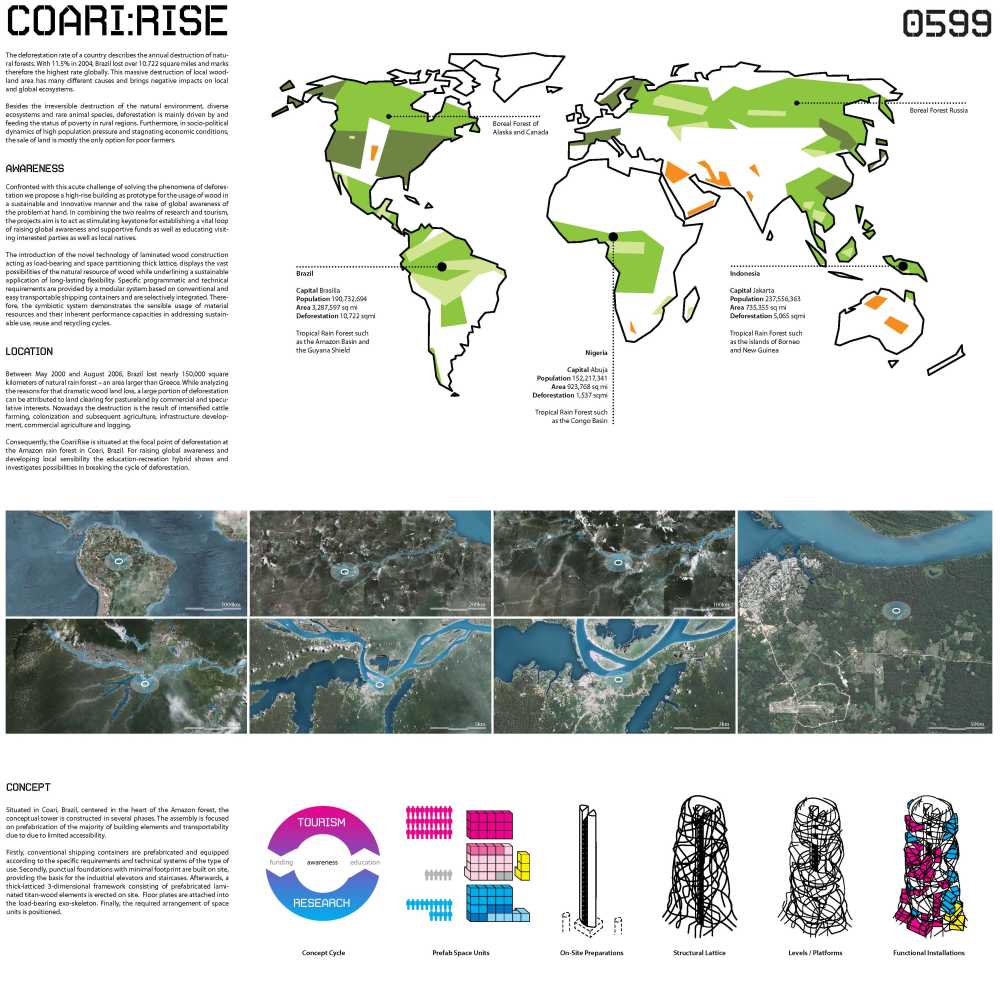
Confronted with this acute challenge of solving the phenomena of deforestation we propose a high-rise building as prototype for the usage of wood in a sustainable and innovative manner and the raise of global awareness of the problem at hand. In combining the two realms of research and tourism, the projects aim is to act as stimulating keystone for establishing a vital loop of raising global awareness and supportive funds as well as educating visiting interested parties and local natives.

The introduction of the novel technology of laminated wood construction acting as load-bearing and space partitioning thick lattice, displays the vast possibilities of the natural resource of wood while underlining a sustainable application of long-lasting flexibility. Specific programmatic and technical requirements are provided by a modular system based on conventional and easy transportable shipping containers and are selectively integrated. Therefore, the symbiotic system demonstrates the sensible usage of material resources and their inherent performance capacities in addressing sustainable use, reuse and recycling cycles.
Night View:
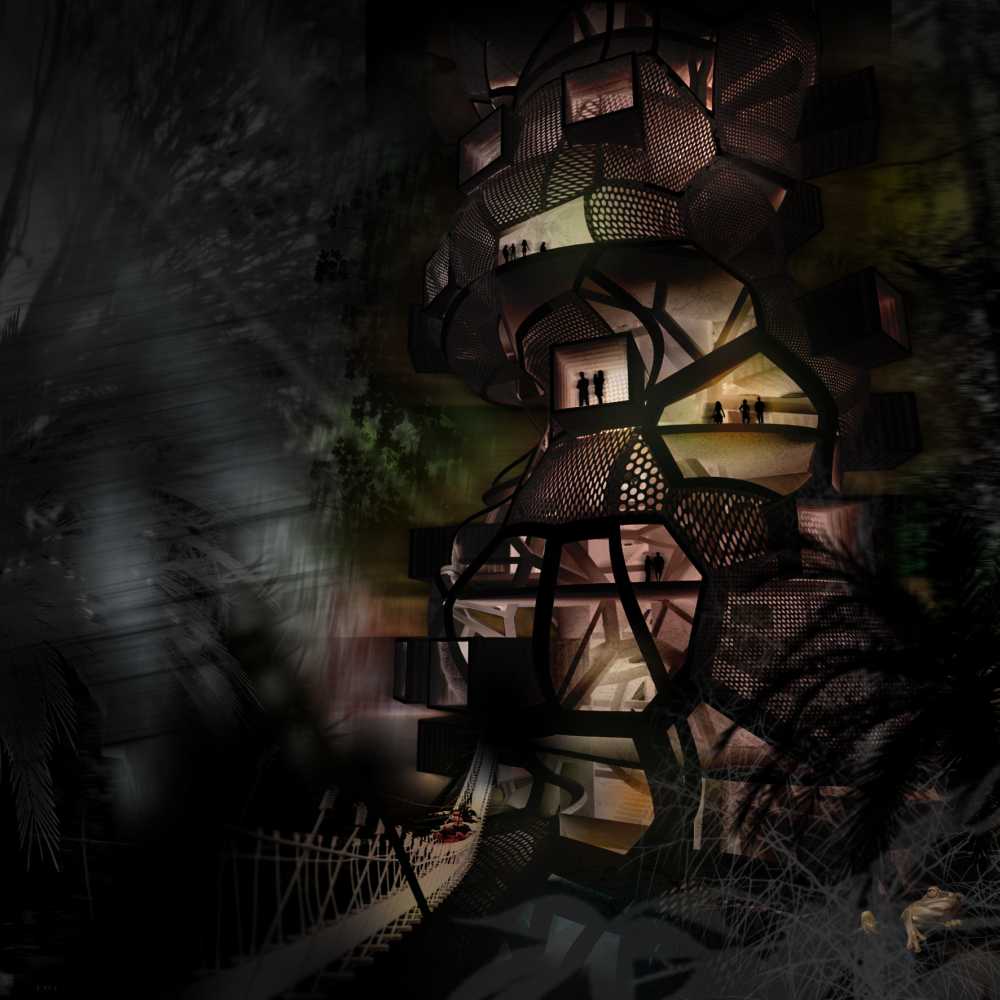

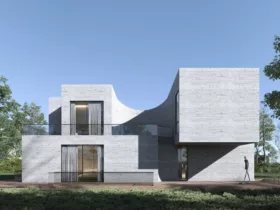
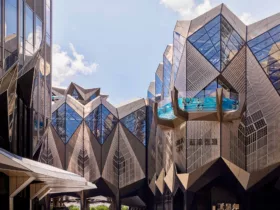
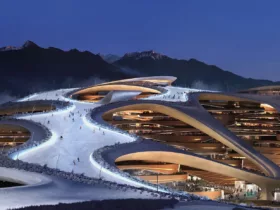
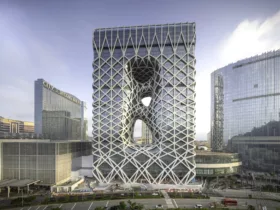
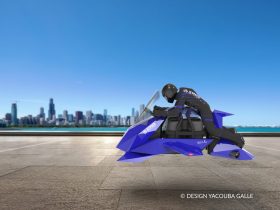
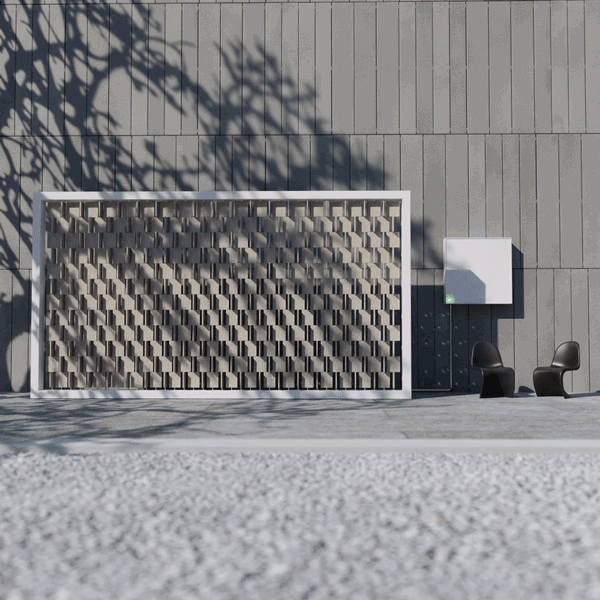
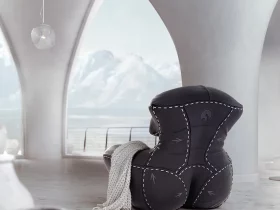
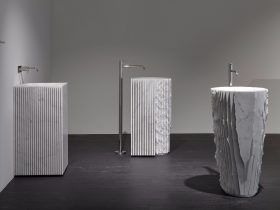
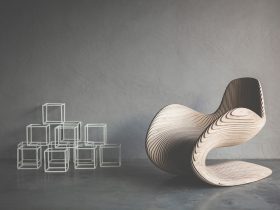




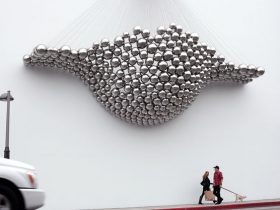
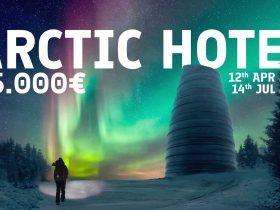
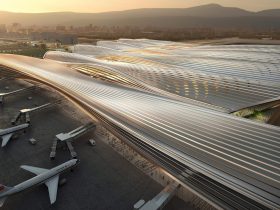
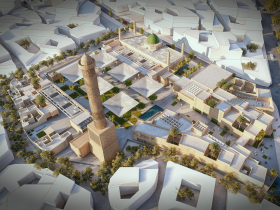
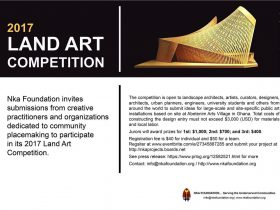
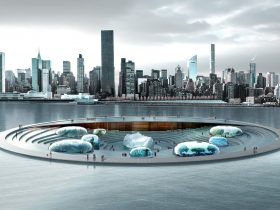
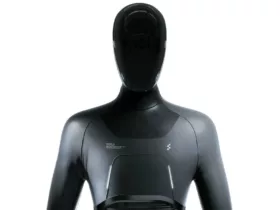
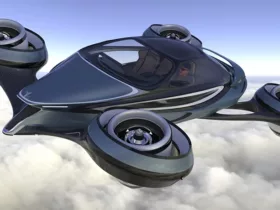
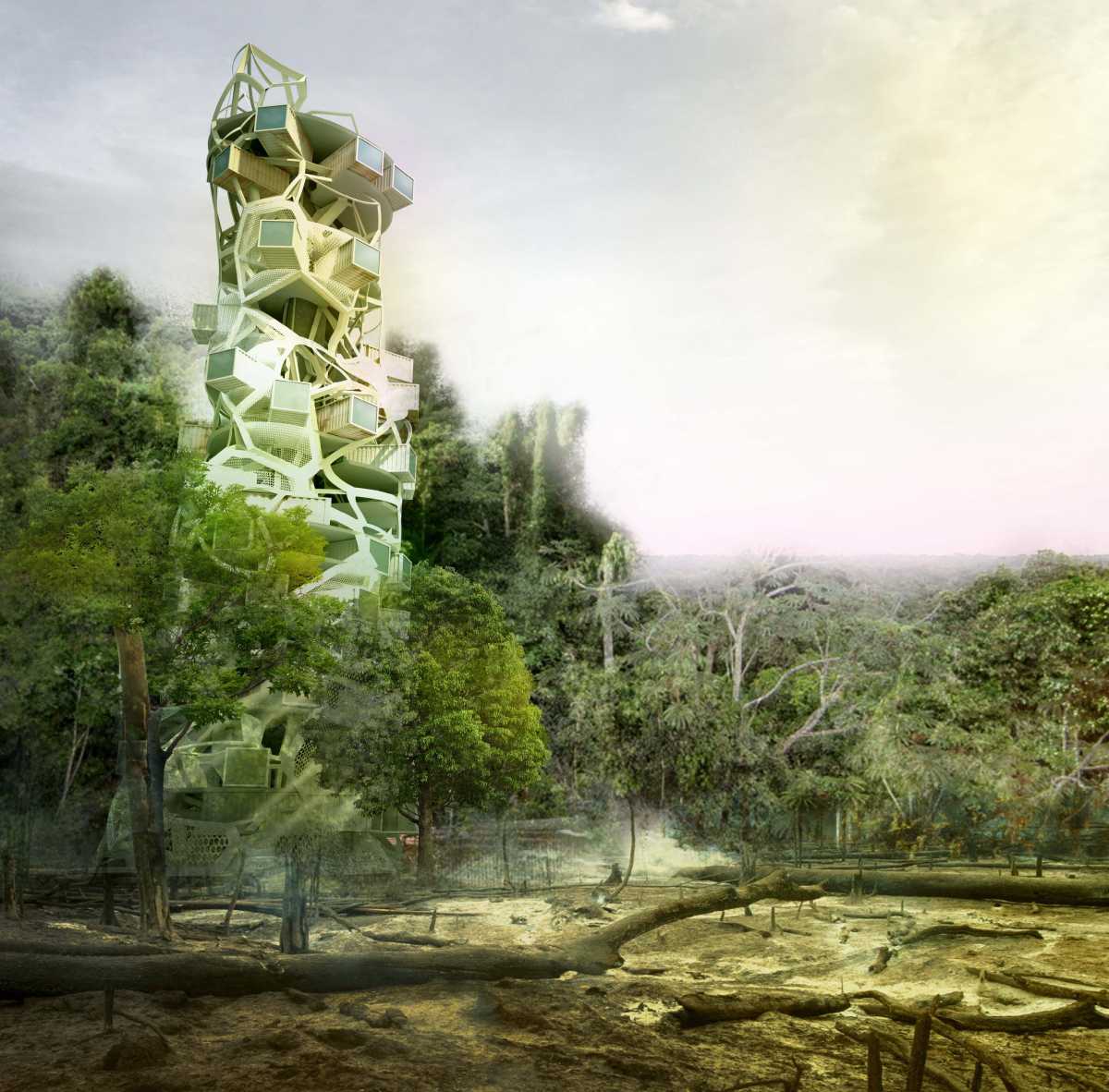
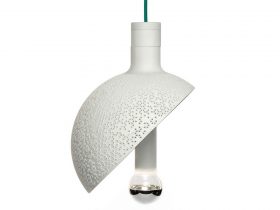
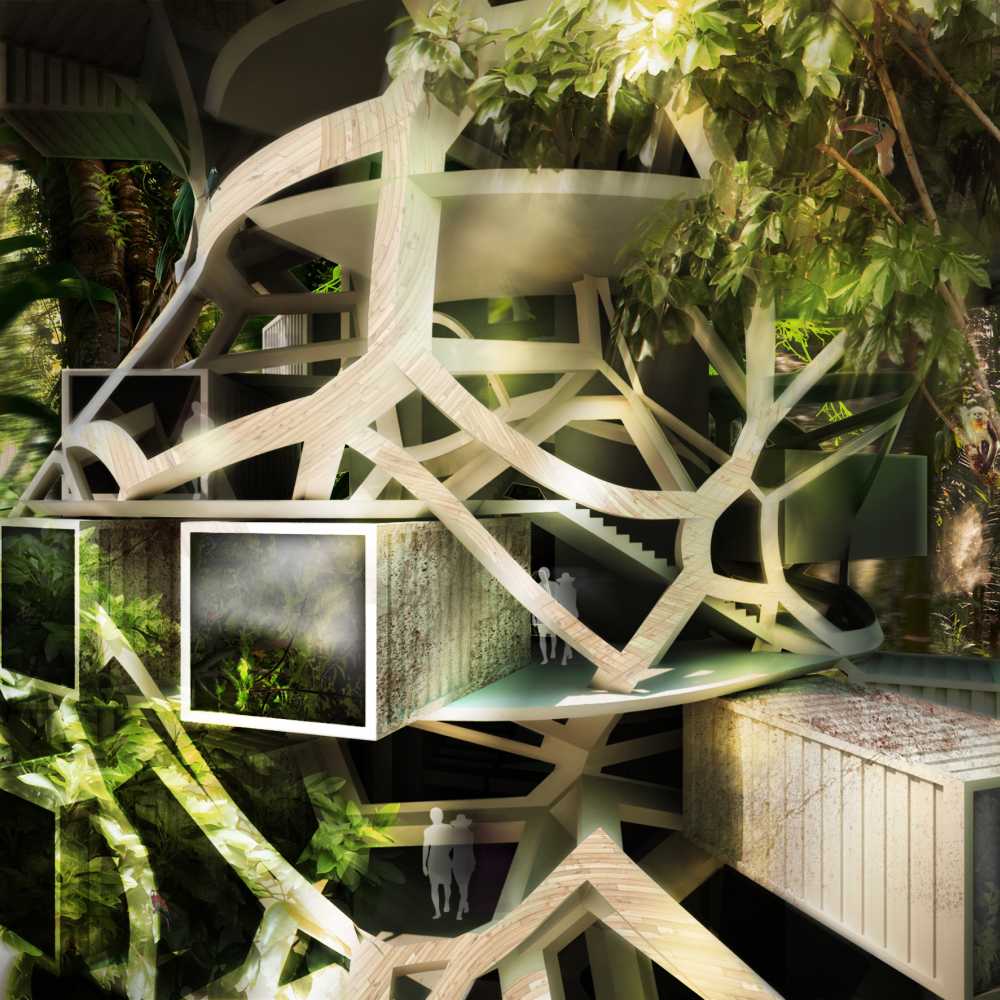
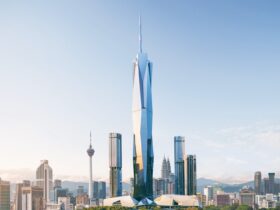
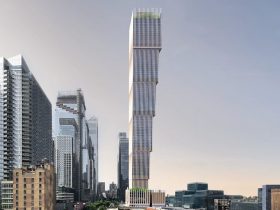
excellent work